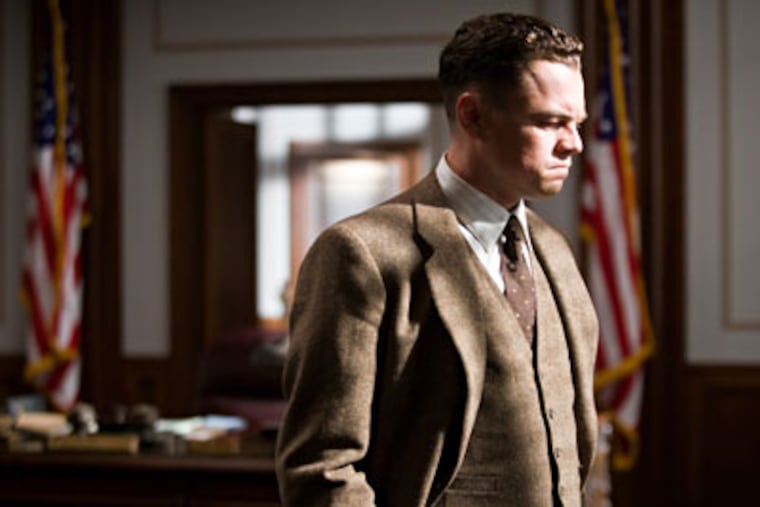Clint Eastwood offers a stolid, superficial take on J. Edgar Hoover
If only Clint Eastwood's J. Edgar had been a little more camp - a goosed-up biopic about the law enforcement bulldog who served under six presidents (famously at odds with many of them), who chased down Bolsheviks and Reds, was a shameless headline-grabber, a closeted homosexual, and maybe a cross-dresser, too.

If only Clint Eastwood's J. Edgar had been a little more camp - a goosed-up biopic about the law enforcement bulldog who served under six presidents (famously at odds with many of them), who chased down Bolsheviks and Reds, was a shameless headline-grabber, a closeted homosexual, and maybe a cross-dresser, too.
Commie (Hatin') Dearest, anyone?
Alas, Eastwood, deploying a roulette wheel of narrative devices (flashbacks, flash forwards, voice-overs) and a platoon or two of makeup artists (Liver spots! Receding hairlines! Jowls! Midriffs!) has opted to play his J. Edgar Hoover story straight, so to speak.
Notwithstanding the overwrought oedipal exchanges between Leonardo DiCaprio's Edgar and his mother (played with stony scowl by Judi Dench), notwithstanding the panic attack Hoover experiences as he's propositioned by a party girl in a Stork Club banquette, and notwithstanding the crazy lovers' spat between the FBI chieftain and his assistant director, Clyde Tolson (Armie Hammer), J. Edgar is an arduous trek through the history books, a gloomy glide down the marble halls of a Washington institution.
Most disappointing, Eastwood's decades-spanning portrait reveals little about the man himself: Edgar, John Edgar, "Speedy" - call him what you will, as written by Dustin Lance Black (Milk) and embodied by DiCaprio, Hoover comes across as thumbnails from a history book rather than a man realized whole. We see him at various stages of life and career, teeming with grand notions of forensic science, proudly guiding a young bureau secretary through the card catalogs he devised for the Library of Congress, butting heads with the Kennedys, and digging up dirt (obsessively) on Martin Luther King.
But in the end, it's hollow stuff. DiCaprio, often slathered in aging makeup, other times playing Hoover with boyish officiousness, never cracks the inner life of the man. You see the actor struggling to conjure the real J. Edgar, but there's too much liquid latex to fight through, and not enough insight and nuance in the script.
Hammer, who played the Winklevoss twins in The Social Network, likewise suffers from the weight of prosthetics and a problematic screenplay. Really, what Eastwood made here is a love story - the tale of two men who took to each other immediately, who lunched together daily and spent their holidays in adjoining hotel suites. Of course, it's the Love That Dare Not Speak Its Name, and it's evidence of the powerful, vengeful FBI boss' hypocrisy: Hoover equated homosexuals with Communists, he forbade his agents to partake of intoxicants, he bugged the boudoirs of powerful politicians engaged in illicit acts, and yet here he is swilling champagne, gambling and gamboling, with the FBI's second in command.
Eastwood, 81 now, happily shows no signs of slowing down - he's made 10 movies these last 10 years, including the Oscar-winning Million Dollar Baby, the searing Letters From Iwo Jima, and his ambitious meditation on fate and death, Hereafter. And he continues to surprise: His approach to J. Edgar (yes, he even has DiCaprio pulling on a dress) is daring, debunking.
I just wish it had been deeper. Or, if not that, then at least a whole lot more fun.EndText